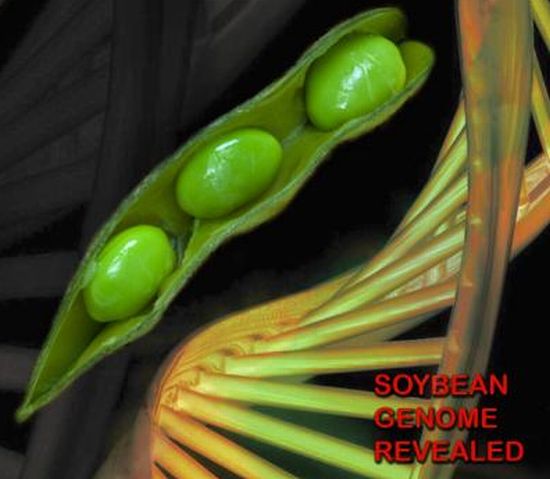
A team of researchers has achieved a milestone in soybean research that could enhance its use for the production of biodiesel. Soybean, which is considered one of the most important sources of protein and oil, has now become the first legume species with a published complete draft genome sequence. As of now, researcher have determined the genetic code, they can expand their reference to more than 20,000 legume species and could access the evolutionary innovation of nitrogen-fixing bacteria.
This will not only help in the introduction of agriculture in the new era, but also likely to solve the problem related to production of biodiesel. Researchers have identified more than 46,000 genes of which 1,110 to be involved in the lipid metabolism. By following these genes and their pathways, now it seems possible for researchers to modify the metabolism to enhance the output and to motivate the use of soybean for biodiesel production.

The main problem concerned with the use of soybean oil for biodiesel had been the lack of enough oil production by the plant. Therefore, it was a major issue as how to improve the amount of oil from a plant so that sufficient quantity could be supplied to replace the gasoline with biodiesel. Now with the availability of soybean genome researchers hope to access the control points governing carbon flow towards protein and oil. Researchers are now looking ahead to improve the oil content in the plant up to 40% by combining the informatics, biochemistry, and genetics. The research team involved members from 18 different institutions and the research was supported by the DOE, National Science Foundation, USDA and United Soybean Board.
Via: Physorg




